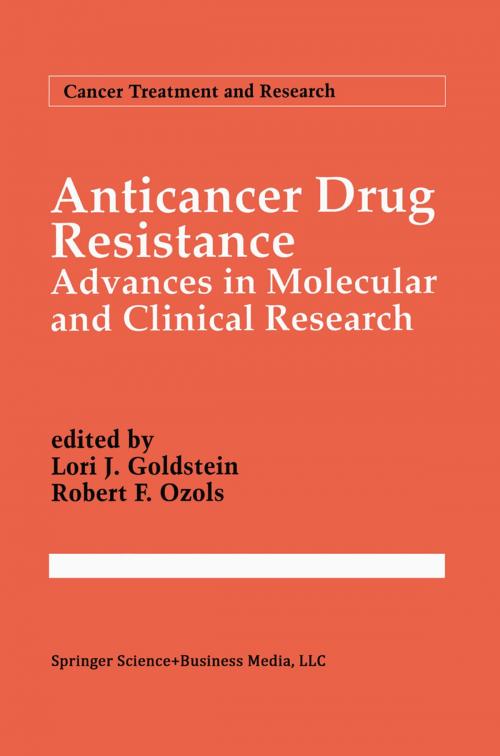Anticancer Drug Resistance
Advances in Molecular and Clinical Research
Nonfiction, Health & Well Being, Medical, Medical Science, Pharmacology, Specialties, Oncology| Author: | ISBN: | 9781461526322 | |
| Publisher: | Springer US | Publication: | December 6, 2012 |
| Imprint: | Springer | Language: | English |
| Author: | |
| ISBN: | 9781461526322 |
| Publisher: | Springer US |
| Publication: | December 6, 2012 |
| Imprint: | Springer |
| Language: | English |
Over the last 50 years, drug development and clinical trials have resulted in successful complete responses in diseases such as childhood leukemia, testicular cancer and Hodgkin's disease. We are still, however, confronted with over 500,000 cancer-related deaths per year. Clearly, the phenomenon of drug resistance is largely responsible for these failures and continues to be an area of active investigation.
Since the last volume in this series, we have learned that the energy-dependent drug efflux protein, p-glycoprotein, encoded by the MDR 1 gene, is a member of a family of structurally related transport polypeptides, thus allowing us to explore the relationship between structure and function. In addition to ongoing well designed clinical trials aimed at reversing MDR mediated drug resistance, the first gene therapy studies with the MDR 1 gene retrovirally transduced into human bone marrow cells are about to be initiated.
Although MDR is currently the most understood mechanism of drug resistance, we are uncovering increasing knowledge of alternative molecular and biochemical mechanisms of drug resistance to antimetabolites, cisplatin and alkylating agents and developing new strategies for circumventing such resistance.
It is clear that drug resistance is complex, and many mechanisms exist by which cancer cells may overcome the cytotoxicity of our known chemotherapeutic agents. As our understanding of each of these mechanisms expands, well designed models will be necessary to test laboratory hypotheses and determine their relationship to drug resistance in humans. It is this integration of basic science and clinical investigation that will both advance our scientific knowledge and result in the improvement of cancer therapy.
Over the last 50 years, drug development and clinical trials have resulted in successful complete responses in diseases such as childhood leukemia, testicular cancer and Hodgkin's disease. We are still, however, confronted with over 500,000 cancer-related deaths per year. Clearly, the phenomenon of drug resistance is largely responsible for these failures and continues to be an area of active investigation.
Since the last volume in this series, we have learned that the energy-dependent drug efflux protein, p-glycoprotein, encoded by the MDR 1 gene, is a member of a family of structurally related transport polypeptides, thus allowing us to explore the relationship between structure and function. In addition to ongoing well designed clinical trials aimed at reversing MDR mediated drug resistance, the first gene therapy studies with the MDR 1 gene retrovirally transduced into human bone marrow cells are about to be initiated.
Although MDR is currently the most understood mechanism of drug resistance, we are uncovering increasing knowledge of alternative molecular and biochemical mechanisms of drug resistance to antimetabolites, cisplatin and alkylating agents and developing new strategies for circumventing such resistance.
It is clear that drug resistance is complex, and many mechanisms exist by which cancer cells may overcome the cytotoxicity of our known chemotherapeutic agents. As our understanding of each of these mechanisms expands, well designed models will be necessary to test laboratory hypotheses and determine their relationship to drug resistance in humans. It is this integration of basic science and clinical investigation that will both advance our scientific knowledge and result in the improvement of cancer therapy.















